ANARCHIST VS. MARXIST MYTHOS (PART 2)
Marxism - Why we should chuck it in the "Fuck It" bucket.
Hey Gang,
Lately, I have been on a big kick about something that I call the World-Story.
The idea is this - each belief system explains the world through some kind of narrative about why things are the why they are.
In other words, each ideology comes with a Mythos. This is important because each belief system will contain certain assumptions about who or what we are, which will then influence whatever ideas we have about what the best course of action for us to take, both individually and politically.
I have written about these ideas before, and recently announced my intention to make covering the World-Story a major focus of my writing.
Whose Great Narrative?
Dear Comrades, This is Crow. I have decided to begin posting here again. I quit several months ago, disgusted that so few people are willing to financially support independent journalism. In a fit of indignation, I took down almost all of my writing and pretty much told all my followers to go fuck themselves.
The End of Their World is the Beginning of Ours!
by Crow Qu’appelle Lately, it feels to me like the world is teetering on the precipice of a tremendous collapse. Really, though, this isn’t a new feeling for me. I have long felt a sense of impending doom, and I know that I am not alone in this. The idea that industrial civilization is bound to fail in some disastrous way has long been woven into the fabr…
THE STORY IS BROKEN.
Big News, everyone! I had a vision. Sort of. I think. NEVERMORE MEDIA is a reader-supported publication. To receive new posts and support my work, consider becoming a free or paid subscriber. Maybe it will sound profound. Maybe it won’t. But I feel like I have a better idea of what exactly my mission in life is now.
In The Story is Broken, I explain that there is no such thing as a culture without a mythology, and liken Mythos to the hidden operating system of any given culture.
That Mythos is a story, or a collection of stories, which I call the World-Story.
In that piece, I encourage people to think the three questions that any mythology must answer. Those three questions are:
What are we?
Where do we come from?
Where are we going?
These three questions compose the World-Story of any given culture. The three questions are simple, but answering them is not, because the purpose of mythology is to produce the type of beliefs that will lead members of that culture to think and to behave in certain culturally-proscribed ways.
Whatever answer human beings come up with will contain some kind of encoded instructions about what attitude towards the world people should have.
As noted previously, there are both moral and political mythologies, raising interesting questions about what the purpose of mythology is. Should a culture’s Mythos aim to produce happy, healthy, self-actualized people? Should it teach people to accept what they cannot change? Should it encourage people to look forward to some glorious future that may never come? Should it teach people to subsume their more selfish desires in the name of the greater good? Should it encourage meekness, cooperation and team work? Should it lionize certain people who achieve great things as a way of providing examples for people to emulate? If so, what kind of actions should a culture celebrate as heroic?
I suppose, in a way, that a culture’s Mythos must accomplish something akin to the Serenity Prayer.
If that’s not clear, let me explain what I mean. There are some unpleasant things that I believe are inherent to the human condition.
First off, we’re all going to die. Biological organisms are, by definition, mortal. There’s no point in denying this. A culture needs to have some sort of way of helping people accept their mortality.
There might be other things that can not be eradicated entirely. Will poverty ever be eliminated from the face of the earth, or was Jesus right that “the poor will be with you always”?
It is worth mentioning that there are many societies described in the anthropological record in which both poverty and mental illness were basically unknown. I’m not convinced that we have to accept poverty and mental illness as an inherent part of the human condition, but I think we can safely assume that they won’t be eliminated anytime soon.
There is anarchist slogan that goes: “No one is free while others are oppressed.” If one believes that a free society can only be comprised of free individuals, this makes sense. But I think that a decent World-Story must concern itself with the fact that human life contain a certain amount of unavoidable suffering. I don’t feel like that I should prevent myself from enjoying life because some people are suffering horribly somewhere.
The world is a big place. Someone is always going to be suffering somewhere, and it’s possible that there’ a reason why things are the way they are that we cannot perceive from the vantage point of our human consciousness. In any case, the vast majority of the world’s suffering is not own fault.
So one of the questions that a mythology must answer is how the uglier aspects of the human condition might best be understood.
The First Noble Truth of Buddhism is that life is suffering, and the Abrahamic religions teach that we became mortal beings when we were exiled from the Garden of Eden. In other words, human beings are born with a curse.
It’s worth noting that Buddhism and the Abrahamic religions emerged in societies where class divisions were very entrenched.
Shamanic traditions tend to portray nature as a magnificent, awesome, amazing mysterious force that human beings are a part of, rather than something apart from themselves. I have not encountered anything in the world of shamanism about a vengeful, jealous God that insists we must unthinkingly obey him. This is simply not a universal concept.
There’s a very fine balance to be struck. An enlightened sage, wishing to pass along his life’s wisdom to younger people, is forced to acknowledge that there are some things which might not want to accept but which one simply must.
In general, it is wiser to adapt oneself to the world rather than trying to change the world, because it is a very big ask to expect the world to change to please you.
That said, change is constant, inevitable, and necessary, and there are some things that people should not tolerate. Sometimes it is necessary to say no, and to band together with other people to stand up for yourselves.
Utah Phillips put it best:
“You’re born free. Then you wait for someone to try to take that freedom away from you. The extend to which you resist is the extent to which you are free.”
Anarchism is based upon the belief that political disobedience is a virtue in certain situations. As the saying goes:
“When injustice becomes law, resistance becomes duty.”
That said, balance is key. We shouldn’t let our lives be defined by conflict, or be so cantankerous as to annoy everyone.
This brings me back to Marxism. I think that Marxism does work as a World-Story, but I don’t feel like it really encourages individuals to become fully self-realized, or to achieve a measure of happiness in a fallen world.
It would be a shame if Marxists were to feel guilty for enjoying life because their belief system told them there are people suffering somewhere, and they don’t have a right to enjoy life because the world is full of suffering.
It’s interesting to note that Marxism, like Christianity, comes with its own set of characteristic guilt complexes.
In Christianity, people suffer complexes having to do with “the sinful nature of the flesh”, whereas Marxists have guilt complexes related to privilege.
Because Marxism divides the world into oppressors and exploited, and teaches that people should have equal access to resources, Marxists end up feeling guilty if they are at all prosperous. Some then project the guilt upon others and accuse them of being oppressors. It gets very annoying.
Another thing that Marxists don’t seem to get is the law of unintended consequences.
As Karl Popper put it:
[T]he attempt to make heaven on earth invariably produces hell. It leads to intolerance. It leads to religious wars, and to the saving of souls through the inquisition. And it is, I believe, based on a complete misunderstanding of our moral duties. It is our duty to help those who need help; but it cannot be our duty to make others happy, since this does not depend on us…
Marxists don’t seem to realize is that you can’t really force people to be free.
You kind of have to meet them where they’re at, and in the real world, people are often the cause of their own suffering. What do you do to help someone who is forever gambling all their money away, for instance? If people don’t have to live with the consequences of their actions, they’ll never learn from their mistakes. This concept, known as moral hazard, simply doesn’t exist within Marxism. Invariably, the poor are poor because of the rich, never due to their own faults, mistakes, vices, or addictions. At the end of the day, this is infantilizing. The poor are more than mere victims of circumstances. They are political actors within their own spheres of influence, and to fail to see this is to fail to see them as fully human.
Ultimately, Marxists want the state to assume to assume the responsibilities that parents have over children. Your father will provide and protect you, so long as you do what you’re told, and your mother will nurture you through free education, healthcare, childcare, etc. The state ultimately is to oversee every sphere of human activity, something that has proved time and time again to lead predictably to disaster, mass death, and widespread poverty.
Anarchists and Marxists start from the common point of rejecting the rule of the rich, but from there they go in very different directions.
This is the second part in a two-part series which compares and contrasts anarchist mythology with Marxist mythology.
In the first part, I examined the Marxist World-Story, and in this part I will provide my own version of an anarchist world-story as well.
If you want to start from the beginning, you can check out Part One here:
ANARCHIST VS. MARXIST MYTHOS (PART 1)
Hey Gang, In a recent piece, I explained a revelation that I recently had, which was partly inspired by someone called Sketchy the Clown. The revelation was this - The World-Story is Broken. In that piece, I explain that there is no such thing as a culture without a mythology, and liken Mythos to the hidden operating system of any given culture.
THE ANARCHIST WORLD-STORY
Okay, first of all, I’ll point out that there isn’t really one anarchist world-story.
In the political scene in which I grew up, the divide was between red anarchists, who believed in class war, and green anarchists, who believe that Western civilization is inherently unsustainable and that we should be preparing for its collapse.
These days, I am in contact also with a third group who I’ll called yellow anarchists. This group includes voluntarists, Agorists, market anarchists, libertarians, anarcho-capitalists, mutualists, and objectivists. Basically, these are people who oppose statism but who believe that a free market is an absolutely indispensable part of a free society.
For simplicity’s sake, I’ll call the three camps red, green, and yellow.
I think that at this point, the red anarchists have basically vanished, at least in the First World. Simply put, labour relations have changed, and the rise of the gig economy means that trade unions just aren’t as relevant as they used to be. I honestly can’t think of a single red anarchist thinker I find inspiring these days, so I’m going to ignore the red anarchist World-Story for now. Please don’t interpret this as a lack of respect for the red anarchist tradition! I definitely feel they were on the right side of history throughout the twentieth century.
I will leave the yellow anarchist world-story aside for now, as I haven’t really studied anarcho-capitalism sufficiently to feel like I understand it.
In reality, anarchists are a very heterodox bunch, so what I am about to offer is nothing but a preliminary sketch presented for your consideration and critique.
Here we go!
THE ANARCHIST WORLD-STORY
What are we?
We are autonomous beings, graced by the mysterious forces of the universe with free will, and we are free to do as we please with the mysterious and miraculous gift.
No one truly knows the universe exists, and if we were created for some specific purpose, there is no universal agreement about what exactly that is.
Some things are simply unknowable, and that is why we hold an attitude of reverence towards the mysterious force which brought us into existence.
That said, human beings have learned over the years that some things lead to good results and that some things don’t. There are some things that human beings should not do, including enslaving people and forcing them to obey you, or to extort, exploit or violate them. The basis for anarchist morality is natural law, which is based upon an understanding of right and wrong. Because human beings are possessed of consciences, and because we are capable of moral reasoning, we are capable of reaching agreement about what is and what isn’t acceptable. This is important because anarchist societies govern themselves by taboo, not legal codes.
Because we are social beings, we all need to cooperate, and sometimes this means agreeing not to something that you want to do, or vice-versa. One has the freedom to do what one wishes, so long as it does not violate the rights of another person, but one also has responsibilities towards the community of which one is a part. Rights and responsibilities are two sides of the same coin.
Although some degree of suffering is inherent to human existence, life is a not a curse, but a blessing for which we should be grateful.
We are mammals with deep-seated instincts to co-operate with our fellow human beings, although we do have competitive urges as well.
One of the main problems with human beings is that some people are greedy and power-hungry, and certain urges must be held in check. When an individual or group begins to behave tyrannically, it is the responsibility of other members of that society to band together and put an end to it. This is called counter-dominance.
We are meant to contribute to society, and in return, we deserve to have our rights respected.
Life is to be enjoyed, and ultimately anarchists believe that creating a free society is the best way to produce human beings capable of being the best and most awesome versions of ourselves possible.
Where do we come from?
Once upon a time, we were free and we lived in harmony with nature in a multitude of different cultures and ecosystems.
Then, some five thousand years ago, empires arose in the Middle East and armies conquered most of the known, separating people from the land and forcing them to sell their labour and obey a ruling class.
Over time, this mode of governance spread throughout the entire world.
This is the part of the anarchist world-story that is most similar to the Marxist one - basically, we were once free, then lost our freedom, and that it is possible to regain it some day.
It’s worth noting that this is also quite similar to Christian idea of the Fall From Grace.
Where are we going?
Nothing is written in stone, because the future depends on us.
Because capitalism requires perpetual growth, which is impossible on a finite planet, we are bound for a series of economic, political, and ecological crises.
Because capitalism is not sustainable, and because money is ultimately imaginary, there will come shocks, but capitalism seems very adaptable, so it seems unreasonable to believe that capitalism will inevitably “collapse under the weight of its inherent contradictions”. Even if it does collapse (whatever that means), there is no reason to believe that it will necessarily be replaced with some kind of socialist utopia. It seems entirely possible that society could go back to a more feudalistic system, for instance.
Only thing that does seem certain is that industrial capitalism will not last forever. Although Naomi Klein showed in The Shock Doctrine that capitalism feeds off crisis, leading some people to wonder whether it the current system could continue indefinitely, forever moving from crisis to crisis, feeding off of the chaos that it creates, but capitalism can only change so much before it isn’t capitalism anymore.
Arguably, the dominant system is no longer even capitalist, because in a truly capitalist system, the banks wouldn’t have been bailed out in 2008. What we have now is some kind of bizarre system of corporate socialism, in which profits are private and losses are public. From any logical standpoint, this is totally insane, and it seems unlikely that such a system could last for long. So I don’ think it’s totally crazy to think that capitalism will collapse. One could make the case that is collapsing as we speak, but one could also argue that the whole notion of collapse needs to be reimagined. The end of one paradigm is the beginning of another.
The main connection that anarchists share with Marxists is in relation to our analysis of the injustice of the capitalist system. At the end of the end, this has to do with a rejection of the practice of usury, which is to say predatory moneylending. Arguably, all the problems of the world can be traced back to usury, which tends to make unscrupulous, greedy people phenomenally rich. This leads to kakistocracy.
Given that usury is also seen as a sin in the Abrahamic religions, I believe that opposition to usury should be central to anarchist morality. This would allow us to present our politics in terms that would appeal to people of a religious persuasion. Secularists tend to forget this, but most people in the world are still religious.
Whereas Marxists promise a socialist utopia that will presumably last forever, anarchists offer a more cautiously optimistic scenario of where we hope to end up.
In the words of Spanish anarchist Isaac Puente:
Living in libertarian communism will be like learning to live. Its weak points and its failings will be shown up when it is introduced. If we were politicians we would paint a paradise brimful of perfections. Being human and being aware what human nature can be like, we trust that people will learn to walk the only way it is possible for them to learn: by walking.
Or, as the Italian anarchist Errico Malatesta put it:
“Anarchy cannot come but little by little – slowly, but surely, growing in intensity and extension. Therefore, the subject is not whether we accomplish Anarchy today, tomorrow or within ten centuries, but that we walk toward Anarchy today, tomorrow and always.”Ultimately, the goal is to live in free communities where everyone has everything they need in order to pursue the aspirations of their souls. To me, the goal of an anarchist society should be to foster a culture people able to bring forth from within themselves their fullest potential.
In other words, nothing in this life is promised - we can lay plans and work towards them, but in reality we cannot know what the future holds, yet we have no choice but to do our best choice to strive towards a better world.
This is admirably honest, but is it strategic to promote things in such terms?
I’m quite aware that my casting of the anarchist vision is quite vague, and though I could flesh it out if I were talking about my personal beliefs, my attempt here is to describe the Anarchist Mythos as it exists in the collective unconscious. In doing so, I realize that it could certainly use some work.
Is the vague promise that things could be better than they are now really compelling enough to encourage people to dedicate their lives to revolutionary activism?
The Marxists promise an entire glorious epoch of abundance, and all anarchists offer is the chance to “be all you can be” in some kind of amorphous quasi-utopia?
Hmm. Maybe that’s a problem. Is that really the best way to frame things? I kind of feel we could do better.
The fact of the matter is that there will always be opportunistic hucksters willing to tell people what they want to hear.
Maybe this explains why Marxists have historically been more successful in their recruitment efforts.
If it sounds like I’m advocating for being less honest here, I’m not. What I’m saying more is that we need to really be able to imagine the society we want to create, and to explain why we think that it would be preferable to the status quo.
Creating a whole new society is a lot of work, and you’d better be sure that you’ve thought things through before trying to convince others to join you in trying to create it.
Personally, I think that we would do well to imagine a prosperous society, in which people have everything they need, and which wealth is conceived of in social rather than in purely monetary terms. A good place to start would be by making the elimination of taxation front and centre of the anarchist program.
Statists tend to believe that the state is the reason that prosperity exists, and that stateless societies are necessarily poor.
Guess what? People don’t want to be poor. According to communism, we’re all supposed to be equal, but if that means that we’re all supposed to be equally poor, it’s not too likely to catch on.
I think that what we need is a sort of paradigm shift in how we conceive of wealth. Personally, I hold it to be self-evident that people in general will be prosperous when the state isn’t continually robbing the public in order to pay for the dubious services of a perpetually expanding bureaucracy.
Okay, folks, there you have it.
I realize that this piece is probably pretty all over the place, and I plan to refine these ideas, but I hope that this has been interesting.
In any case, I think that we, as anarchists, would do well to consider how the anarchist World-Story relates to the Marxist one, with the aim of presenting a more attractive vision than that of the Marxists. Honestly, it shouldn’t be hard.
At the end of the day, Marxism is dumb. Marx’s analysis of capitalism was insightful in certain ways, but the solutions he offers are mind-bogglingly stupid and anti-human.
At the end of the day, Marxists were fake socialists. Their true goal was seizing power by placing the entire economies of whole countries under the authority of central banks. Their solution to the problems caused by the concentration of power in the hands of the rich was to concentrate power in the hands of central banks. That’s dumb.
This is a tough pill to swallow for a lot of people. I get it.
But we’ve really just got to admit that millions upon millions of people were fooled by Marxism for the better part of 200 years, and even after Marx’s stupid fucking ideas have failed time and time again, resulting in over a hundred million deaths, it still remains a political force. What gives?
Seriously, Marxism, why won’t you die?
Really, at the end of the day, the legendary anarcho-punks Crass put it best:
You talk about your revolution, well, that's fine
But what are you going to be doing come the time?
Are you going to be the big man with the tommy-gun?
Will you talk of freedom when the blood begins to run?
Well, freedom has no value if violence is the price
I don't want your revolution, I want anarchy and peace
You talk of overthrowing power with violence as your tool
You speak of liberation and when the people rule
Well ain't it people rule right now? what difference would there be?
Just another set of bigots with their rifle-sights on me
But what about those people who don't want your new restrictions?
Those that disagree with you and have their own convictions?
You say they've got it wrong because they don't agree with you
So when the revolution comes you'll have to run them through
You say that revolution will bring freedom for us all
Well freedom just ain't freedom when your back's against the wall
You talk of overthrowing power with violence as your tool
You speak of liberation and when the people rule
Well ain't it people rule right now, what difference would there be?
Just another set of bigots with their rifle-sights on me
Will you indoctrinate the masses to serve your new regime?
And simply do away with those whose views are too extreme?
Transportation details could be left to British rail
Where Zyklon B succeeded, North Sea Gas will fail
It's just the same old story of man destroying man
We've got to look for other answers to the problems of this land
You talk of overthrowing power with violence as your tool
You speak of liberation and when the people rule
Well ain't it people rule right now,? what difference would there be?
Just another set of bigots with their rifle-sights on me
Vive la revolution, people of the world unite
Stand up men of courage, it's your job to fight
It all seems very easy, this revolution game
But when you start to really play things won't be quite the same
Your intellectual theories on how it's going to be
Don't seem to take into account the true reality
Cos the truth of what you're saying, as you sit there sipping beer
Is pain and death and suffering, but of course you wouldn't care
You're far too much of a man for that, if Mao did it so can you
What's the freedom of us all against the suffering of the few?
That's the kind of self-deception that killed ten million jews
Just the same false logic that all power-mongers use
So don't think you can fool me with your political tricks
Political right, political left, you can keep your politics
Government is government and all government is force
Left or right, right or left, it takes the same old course
Oppression and restriction, regulation, rule and law
The seizure of that power is all your revolution's for
You romanticise your heroes, quote from Marx and Mao
Well their ideas of freedom are just oppression now
Nothing changed for all the death, that their ideas created
It's just the same fascistic games, but the rules aren't clearly stated
Nothing's really different cos all government's the same
They can call it freedom, but slavery is the game
Nothing changed for all the death, that their ideas created
It's just the same fascistic games, but the rules aren't clearly stated
Nothing's really different cos all government's the same
They can call it freedom, but slavery is the game
There's nothing that you offer but a dream of last years hero
The truth of revolution, brother... is year zero.


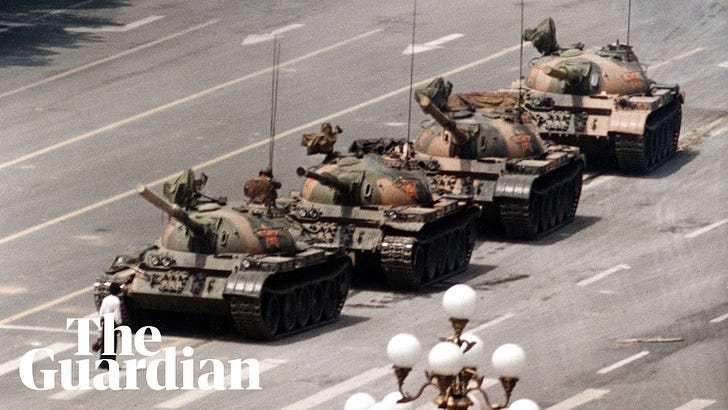


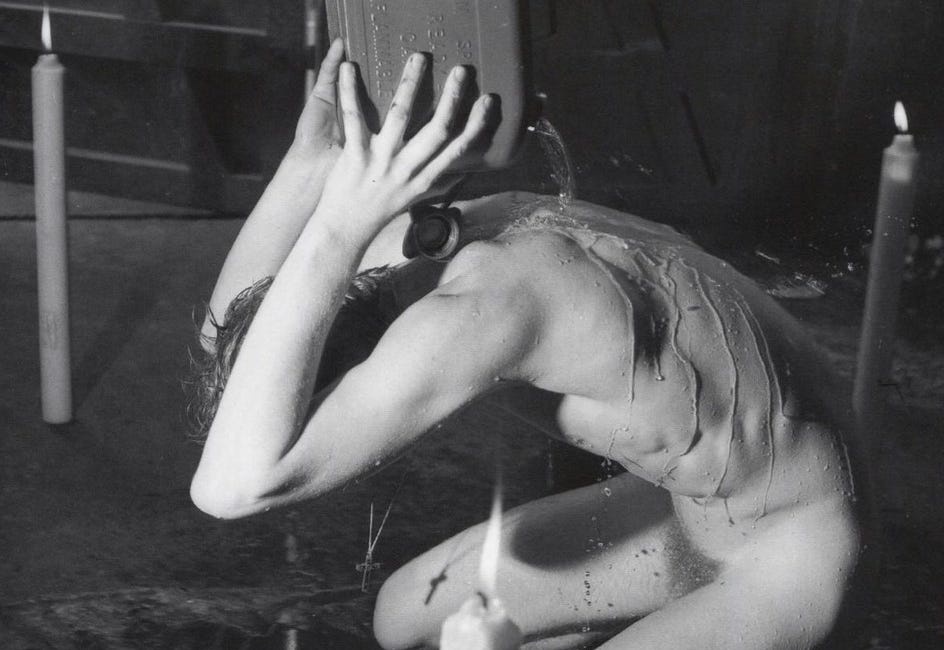


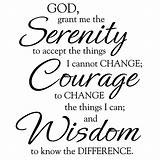


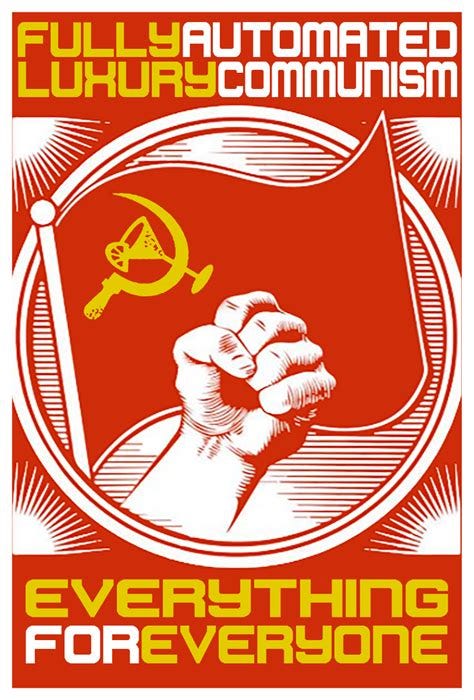
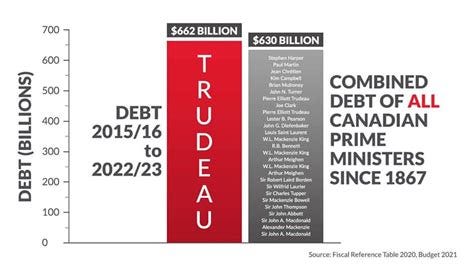
For what it's worth, I think this is a great argument for anarchism. I differ with you on some of what you say about Marx, however. Marx and Engels never really spelled out their ideal society; the vast majority of their work was devoted to understanding how capitalism works, and what it will inevitably do in accordance with its own goals.
Socialism, or taking over the state, was always just a transitional, interim stage to true communism. Marx's clearly stated goal was democracy in the workplace, and the majority with the power to make social and economic decisions.
Unfortunately, once individual human beings get power for themselves, they tend to show an extraordinary reluctance to give someone else a crack at it. The history of the Russian Revolution teaches this lesson in spades.
I must also add that I think anarcho-capitalism is an oxymoron. Capitalism requires economic, and ultimately political, decision-making to be concentrated in just a few hands. After its early stages anyway, it REQUIRIES centralization of power, and is antithetical to anything resembling true democracy.
Or anarchy. BTW, is there a difference between democracy, ie one person one vote, and anarchy?
I freely confess to being ignorant of anarchistic philosophical thought. Any recommendations for someone well-versed in historical materialism?